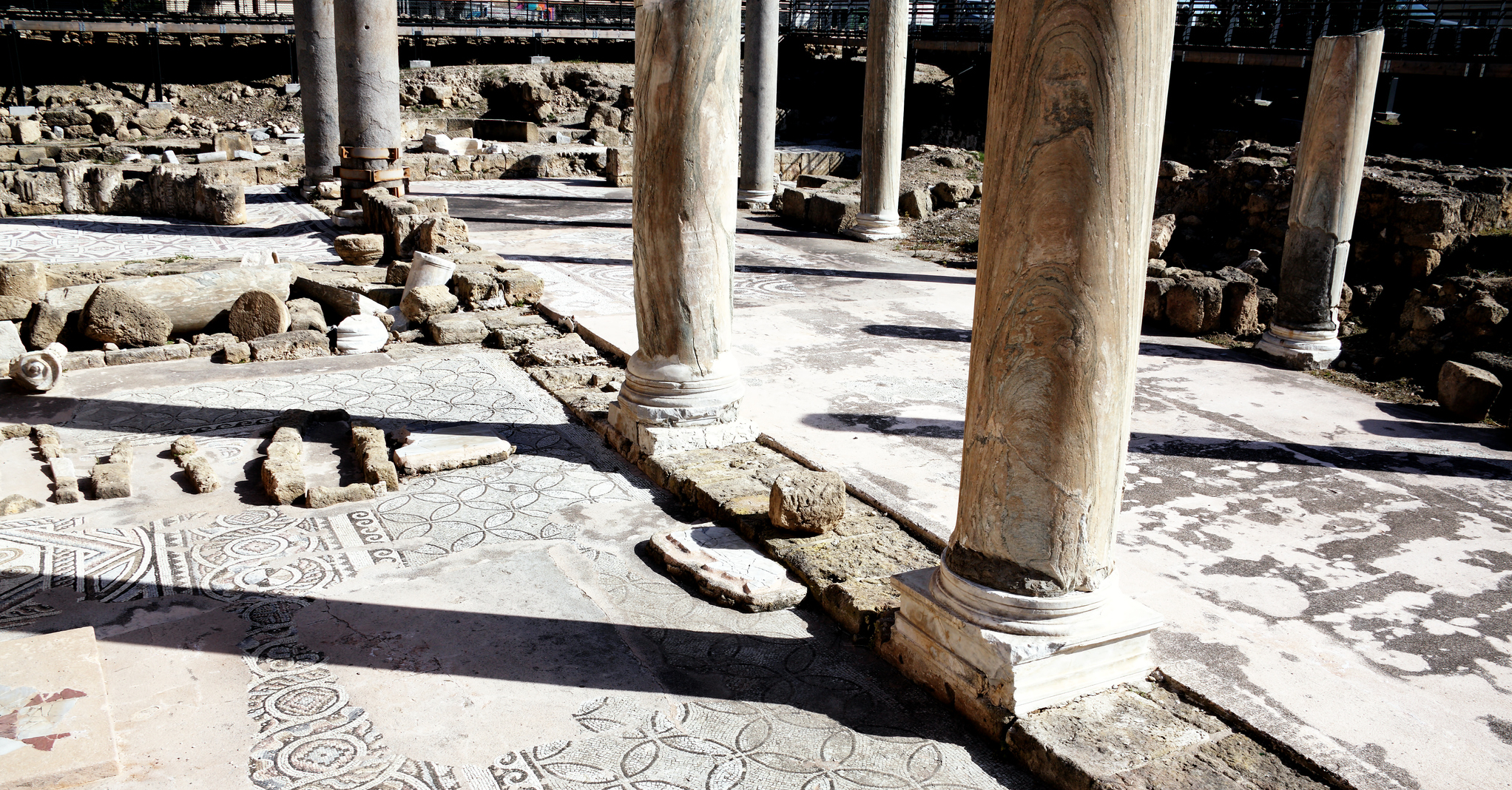
What other ancient book still tops the charts and is read by millions? Written over approximately a 1,600-year period by 40 authors over 3 continents and in 3 languages, the Holy Bible has one central message and is unified from beginning to end. Prophets proclaimed hundreds of fulfilled prophecies. Though targeted throughout history with many attempting to destroy it, this holy book has survived and thrived. Countless lives have been transformed by Scriptural truths. God’s Word can be read daily yet provide a fresh message each time it’s opened.
We know the Word of God is the world’s best-selling book of all time. But, is it true or well-written fiction? Countless souls have sacrificed their lives because they believed the Holy Scriptures to be authentic and authoritative. Many early Christians died martyr’s deaths after experiencing Scriptural events firsthand and recording what they saw and heard. Would they die for what they knew was false?
Why should you believe the Bible is true?
I’m not a scholar and questioned whether or not I should write this article. I’m an average woman who believes in Jesus Christ. But maybe that’s why I should write this piece. I’m confident this is God’s holy word. So, why do I believe this?
Photo Credit: © Getty Images/Christian Chan

1. The Bible has changed my heart and life.
This timeless Book of books has had an immeasurable impact on my life. I’m an avid reader. But God’s Word is unique compared with the innumerable titles I’ve read. I’ve been studying Scripture regularly for at least fifty years and I’ve perused its verses a thousand times. Yet, the words are still fresh and powerful. They continue to inspire, convict, and teach me. What other book could consistently provide such new insights and inspiration?
God’s Word speaks to me personally. It lays my heart bare and chisels away what hinders my soul. His truth has helped me survive hard times. Faith is essential, but even a mustard seed of faith is powerful. When I’m troubled, His truths offer peace. When I’m angry, they guide me to forgive. When selfishness rises up, they teach me to share. His Word communicates His great love for me and reveals my purpose.
Scripture has helped me turn from fear to faith. From timidity to courage. From greed to generosity. From selfishness to sacrifice. There’s no other book that continually speaks into my life.
Most importantly, His Word imparts assurance of eternal life.
2. The Bible is historically reliable and supported by archaeology.
How do we know Homer, Plato, Aristotle, or Caesar were real people? Why would we quote them? What we know about Homer is based on around 2,000 existing manuscripts. For Aristotle, it’s 49 and Plato 7. No one disputes these writings. In comparison, for the New Testament, there are 6,000 plus manuscripts in Greek and 24,000 including all translations! The few Old Testament manuscripts were supplemented by the discovery of the Dead Sea Scrolls and others. “The quality of the manuscripts of the Hebrew Bible surpasses all other ancient manuscripts.”
Many claim Scripture has been changed and twisted over the years, losing its original meaning. But, how do today’s translations compare?
We don’t have the original manuscripts of the oldest books written by Moses. But early copies were made by scribes who painstakingly copied the originals.
The International Bible Society reports, “We know this because there are over 5,000 complete or partial copies of the originals, actually copies of the copies. Yet these thousands of copies (which predate the printing press) agree with each other to an amazing extent. There is no major variation in any of them. No other book from ancient times has this much underlying documentary support.”
Dr. Norman Geisler concluded about the Old Testament, “Comparative studies reveal word-for-word identity in 95 percent of the text. Minor variants consist mostly of slips of the pen or spelling. Only 13 small changes were discovered in the entire Dead Sea Scrolls copy of Isaiah…after 1,000 years of copying, there were no changes in meaning and almost no changes in wording!” He also writes the New Testament accuracy is at 99.9 percent — the best known of any book from the ancient world. His conclusion: “The Bible we hold in our hands is a highly trustworthy copy of the original that came from the pens of the prophets and apostles.”
Many archeological discoveries have supported what is written in the Word of God. Here are three examples out of hundreds confirming Old Testament facts:
Photo Credit: © Unsplash/Joel Muniz

Isaiah prophesied in Isaiah 44:24-28 that the destroyed city of Jerusalem would be rebuilt by Cyrus. 190 years after this prophecy, King Cyrus decreed Jerusalem would be rebuilt and allowed captives to return (Ezra 1:1-4; 2 Chronicles 36:22-23).
These events were verified by the discovery of the Cyrus Cylinder by Howard Rassum in 1879. This artifact is still housed in the British Museum.
Also called “The Mesha Stele,” this stone, discovered in 1868, confirms events and people from the Book of Kings. It makes reference to these biblical names: The House of Omri, Israel, Yahweh, and the House of David.
2 Kings 3:4-5 records how Mesha, king of Moab, rebelled against the king of Israel. The inscription on the stone begins, “I am Mesha…the king of Moab” and continues with his account of the rebellion.
The Old Testament records, “It was Hezekiah who blocked the upper outlet of the Gihon spring and channeled the water down to the west side of the City of David. He succeeded in everything he undertook” (2 Chronicles 32:30).
2 Kings 20:20 tells us, “As for the other events of Hezekiah’s reign, all his achievements and how he made the pool and the tunnel by which he brought water into the city, are they not written in the book of the annals of the kings of Judah?”
The tunnel was built in 701 BCE. It was rediscovered in 1838 by Edward Robinson. This discovery was one of many confirming the historical accuracy of Scripture.
While discussing this biblical fact with my husband, he commented, “Why would God inspire them to include this detail? Because He knew it would be discovered and confirm His Word.”
Photo Credit: © Getty Images/TonyBaggett
Two Powerful New Testament Discoveries:
1. p52 Manuscript (Fragment of the Gospel of John)
The p52 is the earliest manuscript which has been found from the New Testament. It dates to less than 100 years after it was written and contains parts of John 18. This is an astounding find and only one of over 5,800 biblical Greek manuscripts discovered so far. Much more than any other ancient writings.
In John 9:7, Jesus told a blind man, “Go…wash in the Pool of Siloam.”
This same pool was discovered in 2004, another confirmation of a Biblical place.
Further Reading: Does Archaeology Disprove the Bible?
3. The Bible is unique in scientific accuracy.
The Word of God displays advanced scientific knowledge. Here are two examples:
1. Sanitation
Between 1831 and 1854, a cholera epidemic killed thousands in England. Dr. Snow discovered it was caused by contaminated water as raw sewage ran in the streets. He is considered a pioneer on public health.
Around 1450 BC, this instruction was decreed in Deuteronomy 23:12-13, “Designate a place outside the camp where you can go to relieve yourself. As part of your equipment have something to dig with and when you relieve yourself, dig a hole and cover up your excrement.” Believing and following this instruction potentially would have saved thousands through the years.
2. Quarantine
“The practice of quarantine, as we know it, began during the 14th century…” – CDC
Yet, this practice was taught in Leviticus 13:45-46 several thousand years earlier: “The person with such an infectious disease must wear torn clothes, let his hair be unkempt, cover the lower part of his face and cry out, ‘Unclean! Unclean!’ As long as he has the infection he remains unclean. He must live alone; he must live outside the camp.”
Around 1450-1410 BC the Word of God taught us to cover our face and quarantine when we have an infectious disease.
More examples of scientific correctness.

4. Fulfilled prophecies.
The Holy Bible contains numerous prophecies, and while many were fulfilled throughout the Old and New Testament times, some are yet to be realized.
The Old Testament prophet Daniel gave many forecasts which proved accurate
“Daniel describes the exact ebb and flow of four empires from Babylon to Medo-Persia to Greece to Rome. He even foresaw the meteoric rise to power of the Greek conqueror Alexander the Great, as well as the final division of his Greek empire by four of his surviving generals (Daniel 7:6, 8:5-8, 11:2-4)." (Answering Genesis)
The Messianic Prophecies are some of the most abundant and amazing. Jesus Christ fulfilled over 300 predictions pointing to the Messiah.
Here are a few He fulfilled:
Prophets foretold Jesus would be born in Bethlehem of a virgin, come from the house of David, and do miracles (Micah 5:2; Isaiah 7:14; Jeremiah 23:5-6; Isaiah 35:5).
Details of the crucifixion were also predicted:
Hands and feet would be pierced (Psalm 22:16).
They parted His garments (Psalm 22:18).
No bones would be broken (Psalm 34:20)
Betrayed by a friend (Psalm 41:9).
He would be mocked and beaten (Isaiah 50:6; 53:5).
See also: 7 Prophecies That Foretold Jesus’ Birth
5. The Bible has a unified message.
In spite of being written over a period of 16 centuries by over 40 authors from various continents and in different languages, this incredible book has a central message that ties all these writings together. This is humanly impossible. Its unity alone shows it to be a unique and supernatural book.
From Genesis 3:15 where God predicted the woman’s seed would defeat the serpent who is Satan until Revelation 22:20 when Jesus says, “Yes, I am coming soon,” the Lord Jesus Christ is the central character from beginning to end.
Speaking of Jesus, John 1:1-3 teaches, “In the beginning was the Word, and the Word was with God, and the Word was God. He was with God in the beginning. Through Him all things were made; without Him nothing was made that has been made.”
After His resurrection, as Jesus walked with two of His followers on the road to Emmaus, Luke records, “And beginning with Moses and all the Prophets, He explained to them what was said in all the Scriptures concerning Himself” (Luke 24:27).
God’s Word is loved, cherished, and read faithfully by millions. Society is saturated with its influence. The authors were inspired by the Holy Spirit of God to pen what He wanted us to know (2 Timothy 3:16-17). There’s no other book like it in scope, history, accuracy, influence, or authenticity. Lives are changed every day because of the impact of the Holy Scriptures. God’s words continue to be relevant to each generation.
The question remains, “Do you believe the Bible is true?” If you’ve never read God’s Word, begin with the book of John and ask God to speak to you and show you its validity. Jesus said in Luke 11:9, “Seek and you will find.” Moses wrote in Deuteronomy 4:29, “…Seek the LORD your God, you will find Him if you seek Him with all your heart and with all your soul.”
If you honestly want to know the truth, you will find it.
Sources and Further Reading
How Accurate Is the Bible?
Jesus: Fraud or Messiah?
Top Ten Discoveries in Biblical Archaeology Relating to the Old Testament
Top Ten Discoveries in Biblical Archaeology Relating to the New Testament
Jesus in all the books of the Bible – Genesis to Revelation
Fulfilled Prophecy: Evidence for the Reliability of the Bible
Photo Credit: © iStock/Getty Imags Plus/Vladimir Zapletin
Susan Aken is a writer, wife, mom, and follower of Jesus. She is an Oklahoma native but has lived in Nebraska for years. Besides writing, she has a passion for special needs and prayer ministries. She enjoys time with family, reading, and nature photography. She loves studying and teaching Bible truth. She believes life is a journey and we’re all in different places. Jesus is everything to her and it’s all about grace. Visit her at susanaken53.wordpress.com or on Facebook.
Want more interaction with the women of iBelieve? Join our fans, writers, and editors at the iBelieve Facebook group, Together in Faith, for more videos, stories, testimonies, prayers and more. Visit here to join the community!








